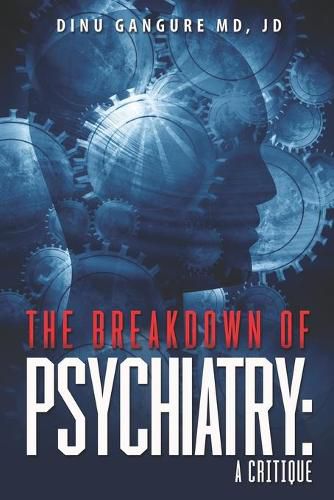Readings Newsletter
Become a Readings Member to make your shopping experience even easier.
Sign in or sign up for free!
You’re not far away from qualifying for FREE standard shipping within Australia
You’ve qualified for FREE standard shipping within Australia
The cart is loading…






This book is made of notes I wrote in a personal journal, on various days in the adventure of being a psychiatrist. As we begin the journey through this book, let’s look at the lenses by which to read it through. The lenses are like axioms in mathematics-not proven, but basic assumptions, on which the whole system is constructed.
The first assumption is that every person has a core need to belong.
The second assumption is that the monologue of a lonely brain has no more power than the brain itself, while two brains working together connected can be more powerful than the same two brains working simultaneously but disconnected. Because a single brain in monologue is no more powerful than the brain itself, I do not describe the lonely brain as having a mind of its own. On the other hand, because two brains working together connected can be more powerful than the same two brains working simultaneously but disconnected, I call the connection between the two brains the mind. Thus, it takes two brains to have a mind.
Science has shown that the psychiatric illness is in the brain, like a brain tumor, with the difference being in size: psychiatric illness tends to be microscopic, while brain tumor tends to be larger. Because science has established the psychiatric illness to be in the brain, the term mental illness is replaced with brain illness in this book. I realize the book breaks with tradition here, but if you are looking to keep the tradition, this is not the book for you. Here it takes two brains to have a mind, in contrast with one brain to have an illness. Therefore, the accurate description of the psychiatric illness is brain illness, not mental illness.
$9.00 standard shipping within Australia
FREE standard shipping within Australia for orders over $100.00
Express & International shipping calculated at checkout
This book is made of notes I wrote in a personal journal, on various days in the adventure of being a psychiatrist. As we begin the journey through this book, let’s look at the lenses by which to read it through. The lenses are like axioms in mathematics-not proven, but basic assumptions, on which the whole system is constructed.
The first assumption is that every person has a core need to belong.
The second assumption is that the monologue of a lonely brain has no more power than the brain itself, while two brains working together connected can be more powerful than the same two brains working simultaneously but disconnected. Because a single brain in monologue is no more powerful than the brain itself, I do not describe the lonely brain as having a mind of its own. On the other hand, because two brains working together connected can be more powerful than the same two brains working simultaneously but disconnected, I call the connection between the two brains the mind. Thus, it takes two brains to have a mind.
Science has shown that the psychiatric illness is in the brain, like a brain tumor, with the difference being in size: psychiatric illness tends to be microscopic, while brain tumor tends to be larger. Because science has established the psychiatric illness to be in the brain, the term mental illness is replaced with brain illness in this book. I realize the book breaks with tradition here, but if you are looking to keep the tradition, this is not the book for you. Here it takes two brains to have a mind, in contrast with one brain to have an illness. Therefore, the accurate description of the psychiatric illness is brain illness, not mental illness.